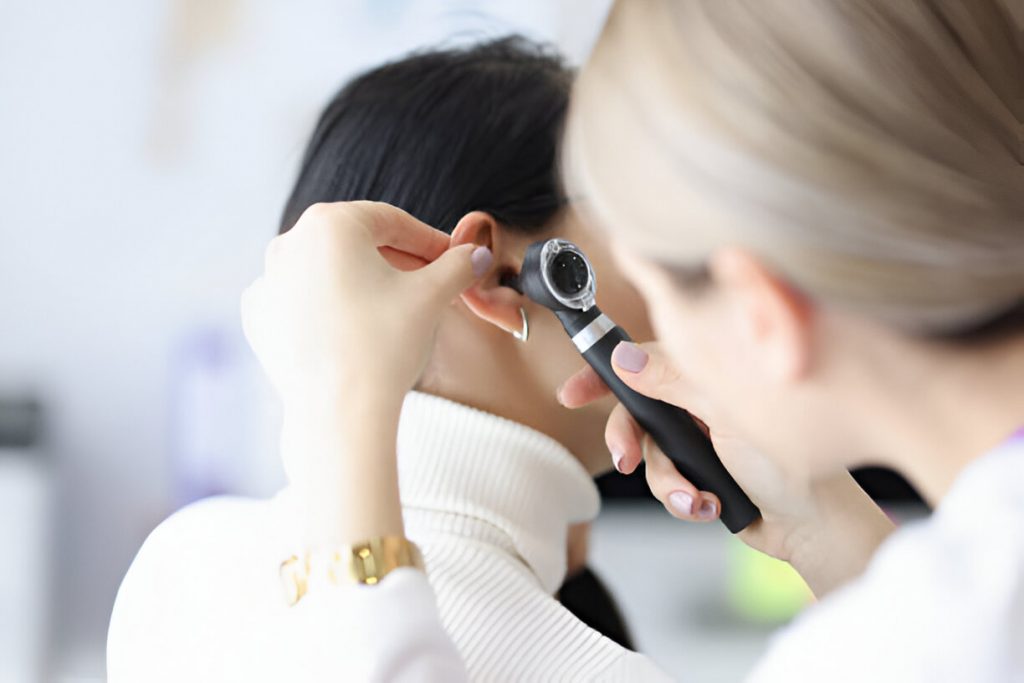
Expert Advice on Eczema- Soothing Solutions for Lasting Relief
Seeking professional medical advice is crucial for effectively managing eczema and preventing complications such as infections. For example, individuals with eczema are at a higher risk of developing ear infections and earaches due to skin barrier damage. A Primary Care Doctor in Phoenix can provide tailored treatment plans to manage symptoms and improve overall skin health.
This guide will explore eczema in detail, including its causes, symptoms, treatment options, and strategies for preventing flare-ups.
Understanding Eczema: Causes, Symptoms, and Types
What is Eczema?
Eczema, also known as atopic dermatitis, is a condition that leads to inflammation, redness, and irritation of the skin. It affects people of all ages but is most common in children. While some individuals outgrow eczema, many continue to experience symptoms into adulthood.
Eczema disrupts the skin’s natural barrier, making it more prone to moisture loss and irritation from allergens or irritants. This can result in itchiness, dryness, and frequent flare-ups.
Causes and Risk Factors
The exact cause of eczema is unknown, but it is believed to result from a combination of:
Genetic predisposition (family history of eczema, asthma, or allergies).
Environmental factors such as allergens, pollutants, and extreme temperatures.
Immune system dysfunction, leading to excessive inflammation.
Eczema is often associated with other inflammatory conditions, including asthma and allergies.
Common Symptoms
Eczema symptoms vary from person to person but often include:
✔ Dry, itchy, inflamed skin
✔ Red, cracked, or scaly patches
✔ Blisters, oozing, or crusting in severe cases
✔ Most commonly affected areas: hands, face, neck, elbows, and knees
Types of Eczema
Atopic Dermatitis – The most common, chronic form linked to genetic factors.
Contact Dermatitis – Caused by allergic reactions to irritants (e.g., soaps, chemicals).
Dyshidrotic Eczema – Blistering eczema that affects the hands and feet.
Nummular Eczema – Characterized by round, coin-shaped patches on the skin.
Seborrheic Dermatitis – Affects the scalp, leading to dandruff and redness.
Stasis Dermatitis – Related to poor circulation, mainly in the lower legs.
Eczema and Ear Infections: The Connection
How Eczema Can Lead to Ear Infections and Earaches
Eczema can also affect the skin inside and around the ears, making it more prone to infections. Scratching the affected area can break the skin barrier, allowing bacteria to enter and cause painful ear infections. A Primary Care Doctor in Phoenix can provide tailored treatment plans to manage symptoms and improve overall skin health.
This guide will explore eczema in detail, including its causes, symptoms, treatment options, and strategies for preventing flare-ups.
Understanding Eczema: Causes, Symptoms, and Types
What is Eczema?
Eczema, also known as atopic dermatitis, is a condition that leads to inflammation, redness, and irritation of the skin. It affects people of all ages but is most common in children. While some individuals outgrow eczema, many continue to experience symptoms into adulthood.
Eczema disrupts the skin’s natural barrier, making it more prone to moisture loss and irritation from allergens or irritants. This can result in itchiness, dryness, and frequent flare-ups.
Causes and Risk Factors
The exact cause of eczema is unknown, but it is believed to result from a combination of:
- Genetic predisposition (family history of eczema, asthma, or allergies).
- Environmental factors such as allergens, pollutants, and extreme temperatures.
- Immune system dysfunction, leading to excessive inflammation.
This condition is often associated with other inflammatory conditions, including asthma and allergies.
Common Symptoms
Symptoms vary from person to person but often include:
✔ Dry, itchy, inflamed skin
✔ Red, cracked, or scaly patches
✔ Blisters, oozing, or crusting in severe cases
✔ Most commonly affected areas: hands, face, neck, elbows, and knees
Types of Eczema
- Atopic Dermatitis – The most common, chronic form linked to genetic factors.
- Contact Dermatitis – Caused by allergic reactions to irritants (e.g., soaps, chemicals).
- Dyshidrotic Eczema – Blistering eczema that affects the hands and feet.
- Nummular Eczema – Characterized by round, coin-shaped patches on the skin.
- Seborrheic Dermatitis – Affects the scalp, leading to dandruff and redness.
- Stasis Dermatitis – Related to poor circulation, mainly in the lower legs.
Eczema and Ear Infections: The Connection
How Eczema Can Lead to Ear Infections and Earaches
This condition can also affect the skin inside and around the ears, making it more prone to infections. Scratching the affected area can break the skin barrier, allowing bacteria to enter and cause painful ear infections.
Signs of Ear Infections in People with Eczema
- Ear pain and discomfort
- Itching and redness around the ear canal
- Fluid drainage or crusting inside the ear
- Temporary hearing loss due to swelling/blockages

Signs of Ear Infections in People with Eczema
Ear pain and discomfort
Itching and redness around the ear canal
Fluid drainage or crusting inside the ear
Temporary hearing loss due to swelling/blockages
Preventing Ear Infections and Earaches
Keep ears moisturized to prevent dryness and cracking.
Avoid allergens and irritants that can trigger flare-ups.
Seek medical attention at a Medical Clinic in Phoenix for proper treatment.
Treatment Options for Eczema
Medical Treatments
Topical Corticosteroids – Reduce inflammation and itching.
Immunomodulators – Non-steroidal creams like tacrolimus and pimecrolimus for long-term control.
Antihistamines – Help with itching and prevent scratching.
Oral Medications – For severe cases requiring systemic treatment.
Biologic Therapies – Advanced treatments that target immune system responses.
Home Remedies and Natural Solutions
✔ Moisturizing Routine – Use fragrance-free lotions multiple times a day.
✔ Oatmeal Baths – Help soothe irritated skin.
✔ Coconut Oil & Aloe Vera – Provide natural anti-inflammatory benefits.
✔ Cold Compresses – Reduce swelling and itching.
Lifestyle Changes for Long-Term Relief
Diet & Nutrition – Eat anti-inflammatory foods like salmon, turmeric, and leafy greens.
Hydration & Skin Care – Drink plenty of water and avoid harsh soaps.
Stress Management – Practice mindfulness, meditation, and yoga.
Clothing Choices – Wear breathable fabrics to minimize irritation.
When to See a Primary Care Doctor in Phoenix
Signs That You Need Professional Help
Symptoms persist despite home treatment
Signs of infection (pus, warmth, spreading redness)
Eczema disrupts sleep or daily activities
Prescription treatments are required for severe cases
How a Primary Care Doctor Can Help
Provide accurate diagnosis and customized treatment plans
Identify and address underlying triggers
Refer to dermatologists if needed
Educate patients on proper eczema management techniques
Choosing a Medical Clinic in Phoenix for Eczema Treatment
When selecting a medical clinic, look for:
✔ Experienced dermatologists and primary care physicians
✔ Advanced treatment options for severe cases
✔ Personalized care for long-term eczema relief
Preventing Future Eczema Flare-Ups
Daily Skincare Routine
Moisturize regularly with hypoallergenic creams.
Avoid over-washing and use lukewarm water.
Avoiding Triggers
Identify and minimize exposure to allergens (dust, pet dander, certain foods).
Manage stress to prevent immune system flare-ups.
Protect skin from extreme weather conditions.
Building a Long-Term Eczema Care Plan
Keep a symptom journal to track triggers and patterns.
Stay informed about new eczema treatments.
Work closely with healthcare providers for ongoing support.
Conclusions
Eczema can be challenging to manage, but with the right medical care, lifestyle changes, and preventive strategies, long-term relief is possible. Seeking professional help from a Primary Care Doctor in Phoenix ensures a tailored treatment plan that addresses both symptoms and underlying triggers.
If eczema is affecting your daily life, causing persistent flare-ups or leading to infections, don’t hesitate to schedule an appointment at a trusted Medical Clinic in Phoenix. By following expert advice, maintaining a consistent skincare routine, and making healthy lifestyle choices, you can keep eczema under control and enjoy healthier skin.
Need expert help with eczema? Contact a Primary Care Doctor in Phoenix today for personalized care!











